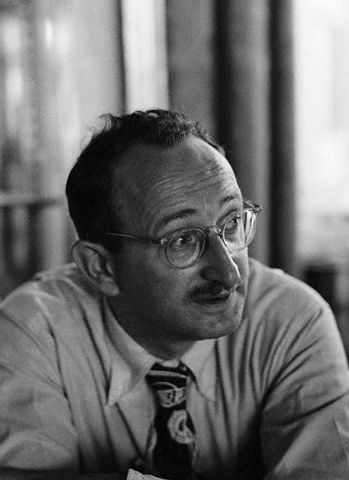
I. Introduction
When the politics of Sidney Hook, a public intellectual and philosopher, are remembered today, they are generally associated with a right-wing variant of social democracy which was compatible with both neoconservatism and McCarthyism.
review
 Temma Kaplan’s Democracy: A World History arrives at a timely moment. With presidential candidates and U.S. officials alike evoking the term “democracy” as a justification for political movements or a pretense for extraterritorial violence, Kaplan’s history of democracy offers a sorely needed study at an opportune time.
Temma Kaplan’s Democracy: A World History arrives at a timely moment. With presidential candidates and U.S. officials alike evoking the term “democracy” as a justification for political movements or a pretense for extraterritorial violence, Kaplan’s history of democracy offers a sorely needed study at an opportune time.
review
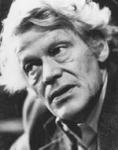 E.P. Thompson (1924–1993) wore several hats during his life. His magnum opus as a historian was The Making of the English Working Class, one of the greatest history books written in the twentieth century in any language. He fought tirelessly for nuclear disarmament in the 1980s, which almost surely took years off his life.
E.P. Thompson (1924–1993) wore several hats during his life. His magnum opus as a historian was The Making of the English Working Class, one of the greatest history books written in the twentieth century in any language. He fought tirelessly for nuclear disarmament in the 1980s, which almost surely took years off his life.
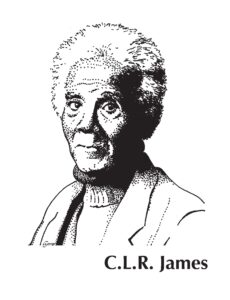
Wilson’s recollections of his association with Correspondence newsletter that was published in Detroit, Michigan, from 1959 to 1967, and of C.L.R. James.

Surveying the political scene in America, we are now witnessing the shattering of the last remnants of the American ideology that has maintained itself—despite strains—for almost 70 years. The ideas that justified the American economic and political system in the minds of most of our citizens throughout that long period came under stress during earlier storms—from the 1950s to the 1970s in particular—and a few beams and joists cracked but did not give way. Today the manifold crises of capitalism mean that the entire existing intellectual structure of American capitalism is breaking up. And because of the role that the U.S. capitalist class plays in the world, this represents a crisis of world capitalist leadership and legitimacy. The question then arises: What will the country’s rulers attempt to put in its place, and what alternative explanation will we on the left and in the labor movement be able to offer to the country’s workers?
review
William Thompson’s Utilitarian Argument for Democratic Work
”Happiness is political,” is the opening line of Kaswan’s provocative book on William Thompson’s theory on the social nature of happiness and its ramification for organizing a just society. Kaswan introduces the reader to Thompson (1775-1833) as “perhaps the paradigmatic case of a traitor to his class.” Thompson was the only son of a wealthy merchant in Cork, Ireland; however as a political theorist, he developed ideas of the Enlightenment in a liberatory direction, calling for the elimination of subordination in all its manifestations.
review
First, allow me to come clean: I count Paul Le Blanc as a friend and comrade and am in his debt—along with Peter Hudis, author of Marx’s Concept of the Alternative to Capitalism (Haymarket, 2013)—for inviting me to join the editorial board of the Complete Works of Rosa Luxemburg being published by Verso Books. And I am in agreement with many of the positions on politics and historical matters that Le Blanc expresses in Unfinished Leninism.
review
The Power Structure and Foreign Policy
The godfather of macro-level power structure research in the United States was the sociologist C. Wright Mills, author of The Power Elite (1956).
In 1971 the Institute of the Black World (IBW) was at a crossroads. Founded in 1969 by historian Vincent Harding, literary scholar Stephen Henderson, and other scholars in the colleges that comprised the Atlanta University Center (AUC), as well as with the support of leading national researchers of the African American experience, the IBW served as the intellectual wing of the Martin Luther King Center.
Socialist History
By: Saulo ColonOctober 7, 2015
 New Politics shares this post, written in June 2015 to celebrate the 100th birthday of Grace Lee Boggs, who passed away Monday Oct 5, 2015. See a film about her:
New Politics shares this post, written in June 2015 to celebrate the 100th birthday of Grace Lee Boggs, who passed away Monday Oct 5, 2015. See a film about her:
http://americanrevolutionaryfilm.com
review
 Jacobs’ The Frankfurt School is an outstanding piece of scholarship.
Jacobs’ The Frankfurt School is an outstanding piece of scholarship.
review
“On the banner of the International was not written ‘Proletarians of all
lands, kill each other!’ but ‘Proletarians of all lands, unite!’”
– Rudolf Rocker, “War: A Study in Fact”
review
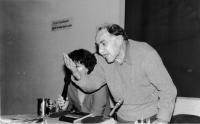 Murray Bookchin was one of the most prolific, original, and influential thinkers on the libertarian left. He was a major theoretician of anarchism and a passionate historian of cities and of popular uprisings and movements.
Murray Bookchin was one of the most prolific, original, and influential thinkers on the libertarian left. He was a major theoretician of anarchism and a passionate historian of cities and of popular uprisings and movements.
 Dan Swain discusses the contested ambitions and leaderships within our movements. This article was originally published in the Summer 2015 issue of the rs21 magazine.
Dan Swain discusses the contested ambitions and leaderships within our movements. This article was originally published in the Summer 2015 issue of the rs21 magazine.
Throughout the history of socialist movements and ideas, the fundamental divide is between Socialism-from-Above and Socialism-from-Below
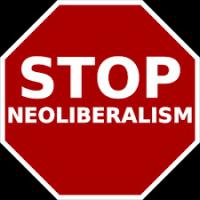 Ask anyone what neoliberalism means and they’ll tell you it’s an economic system that corresponds to a particular economic philosophy. But any real-world economic system has a corresponding political system to promote and sustain it.
Ask anyone what neoliberalism means and they’ll tell you it’s an economic system that corresponds to a particular economic philosophy. But any real-world economic system has a corresponding political system to promote and sustain it.
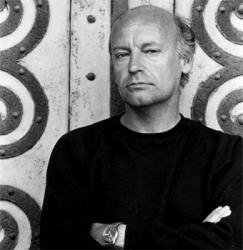
Eduardo Galeano, the world-renowned leftist Uruguayan journalist and writer made famous with the publication in 1971 of his book The Open Veins of Latin America: Five Centuries of the Pillage of a Continent, died today at the age of 74 in Montevideo, Uruguay, where he lived. Long admired as a journalist, with his three-volume Memory of Fire in 1982, Galeano also became known as a writer of non-fiction prose who might be compared to writers of fiction such as Gabriel García Márquez, author of the novel One Hundred Years of Solitude or Isabel Allende who wrote House of the Spirits. Like their novels, his trilogy captures the real spirit of Latin America’s magical history.
The Rosa Luxemburg Stiftung—New York Office
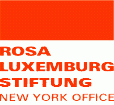 In the first days of August 2014, the Rosa Luxemburg Stiftung—New York Office brought together one hundred influential leftists from across the United States, Canada, and Europe for an “un-conference” on socialist strategies. The retreat was held at the Edith Macy Center, located in Westchester County about an hour north of New York City.
In the first days of August 2014, the Rosa Luxemburg Stiftung—New York Office brought together one hundred influential leftists from across the United States, Canada, and Europe for an “un-conference” on socialist strategies. The retreat was held at the Edith Macy Center, located in Westchester County about an hour north of New York City.
[This article, titled “A Chapter of Russian Reaction,” translated into English here for the first time, was written in German by longtime homosexual activist Kurt Hiller (1885–1972) from London and published in the Swiss gay journal Der Kreis in 1946. Hiller had been active in Germany’s first homosexual-rights organization, the Wissenschaftlich-humanitäre Komitee (Scientific Humanitarian Committee), headed by Magnus Hirschfeld (1868–1935). Founded in 1897, the committee was Germany’s most prominent gay group.
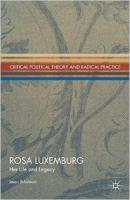 BOOKS DISCUSSED IN THIS ESSAY:
BOOKS DISCUSSED IN THIS ESSAY:
Rosa Luxemburg: Her Life and Legacy
Edited by Jason Schulman
Palgrave Macmillan, 2013, 214 pp.
The Complete Works of Rosa Luxemburg:
Volume I: Economic Writings 1
Edited by Peter Hudis
Verso, 2013, 596 pp.
Right-wing militias killed Rosa Luxemburg and dumped her dead body into the Landwehr Canal after the Spartacus uprising in Berlin. Social democrats and communists finished off her intellectual and political legacy by putting her on their respective pedestals. She became a principal witness against Bolshevik organizing practices for the former and was praised as a co-founder of the German Communist Party and a revolutionary martyr by the latter.
review
For many years the dominant trend in scholarship on C.L.R. James has been to emphasize his cultural and literary writings. Arguably the most popular way to frame his legacy has been to situate him as a forerunner to cultural studies, post-colonial studies, and identity politics. Grant Farred, for example, has criticized “earlier modes of James studies” that addressed “debates that occupied sectarian James scholars” and welcomed “the centrality of cultural studies within James scholarship,” while Brett St. Louis has argued that the “march of identity politics and post-modernism” is “irresistible,” and that James’s work is of value precisely because it “grapples with a proto-post-marxist problematic.”

 Temma Kaplan’s Democracy: A World History arrives at a timely moment. With presidential candidates and U.S. officials alike evoking the term “democracy” as a justification for political movements or a pretense for extraterritorial violence, Kaplan’s history of democracy offers a sorely needed study at an opportune time.
Temma Kaplan’s Democracy: A World History arrives at a timely moment. With presidential candidates and U.S. officials alike evoking the term “democracy” as a justification for political movements or a pretense for extraterritorial violence, Kaplan’s history of democracy offers a sorely needed study at an opportune time. E.P. Thompson (1924–1993) wore several hats during his life. His magnum opus as a historian was The Making of the English Working Class, one of the greatest history books written in the twentieth century in any language. He fought tirelessly for nuclear disarmament in the 1980s, which almost surely took years off his life.
E.P. Thompson (1924–1993) wore several hats during his life. His magnum opus as a historian was The Making of the English Working Class, one of the greatest history books written in the twentieth century in any language. He fought tirelessly for nuclear disarmament in the 1980s, which almost surely took years off his life.

 New Politics shares this post, written in June 2015 to celebrate the 100th birthday of Grace Lee Boggs, who passed away Monday Oct 5, 2015. See a film about her:
New Politics shares this post, written in June 2015 to celebrate the 100th birthday of Grace Lee Boggs, who passed away Monday Oct 5, 2015. See a film about her: Jacobs’ The Frankfurt School is an outstanding piece of scholarship.
Jacobs’ The Frankfurt School is an outstanding piece of scholarship. Murray Bookchin was one of the most prolific, original, and influential thinkers on the libertarian left. He was a major theoretician of anarchism and a passionate historian of cities and of popular uprisings and movements.
Murray Bookchin was one of the most prolific, original, and influential thinkers on the libertarian left. He was a major theoretician of anarchism and a passionate historian of cities and of popular uprisings and movements. Dan Swain discusses the contested ambitions and leaderships within our movements. This article was originally published in the Summer 2015 issue of the rs21 magazine.
Dan Swain discusses the contested ambitions and leaderships within our movements. This article was originally published in the Summer 2015 issue of the rs21 magazine. Ask anyone what neoliberalism means and they’ll tell you it’s an economic system that corresponds to a particular economic philosophy. But any real-world economic system has a corresponding political system to promote and sustain it.
Ask anyone what neoliberalism means and they’ll tell you it’s an economic system that corresponds to a particular economic philosophy. But any real-world economic system has a corresponding political system to promote and sustain it.
 In the first days of August 2014, the Rosa Luxemburg Stiftung—New York Office brought together one hundred influential leftists from across the United States, Canada, and Europe for an “un-conference” on socialist strategies. The retreat was held at the Edith Macy Center, located in Westchester County about an hour north of New York City.
In the first days of August 2014, the Rosa Luxemburg Stiftung—New York Office brought together one hundred influential leftists from across the United States, Canada, and Europe for an “un-conference” on socialist strategies. The retreat was held at the Edith Macy Center, located in Westchester County about an hour north of New York City. BOOKS DISCUSSED IN THIS ESSAY:
BOOKS DISCUSSED IN THIS ESSAY: